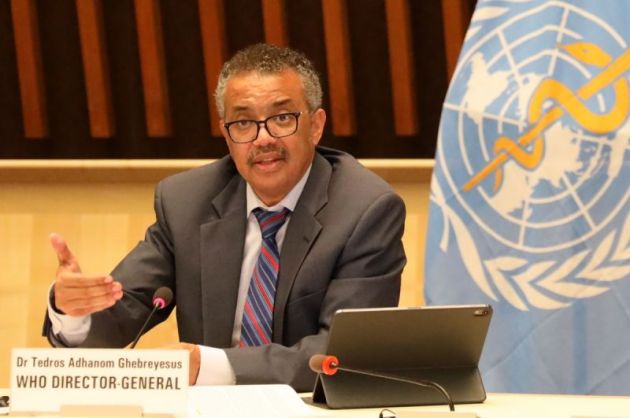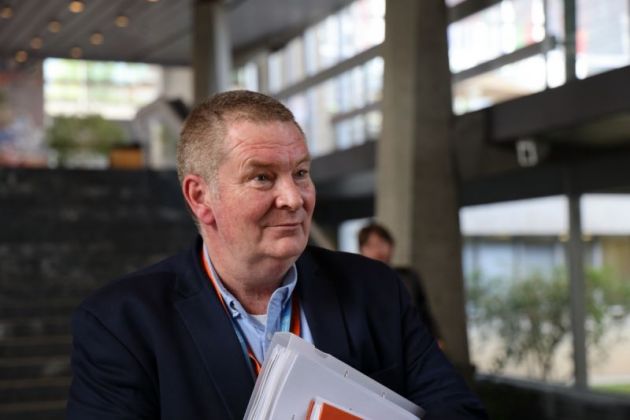Highly politicized COVID-19 divides nations and faiths

The novel coronavirus, COVID-19, has become a highly politicized disease, that has religious groups and politicians resisting ways seen as combating the virus such as wearing masks, in some countries such as the United States on party and church lines.
At a recent World Health Organization (WHO) press conference an African journalist based in Washington DC about those who claim to cure the disease using "non-traditional" measures such as prayers.
"Religious freedom, cherished as an American ideal, has been frequently invoked in the United States during protests against COVID-19 public health measures," wrote The Conversation way back on May 4.
"In Canada, forms of protests -- including by churches -- are more likely to focus on the systemic underfunding of long-term care and homeless shelters or the lack of sufficient medical and water infrastructure in Indigenous communities," wrote the online publication asking "Why the difference?"
It said that across the U.S., conservative Christians flouted state and municipal social distancing orders as late as March 31, sometimes by overtly breaking the law, claiming that God, not the state, will protect the people.
During Christianity's Holy Week, evangelical and Pentecostal church leaders, often backed by Republican Party politicians, brought lawsuits against state and municipal governments, arguing that curtailing religious gatherings for the sake of limiting the spread of COVID-19 was a breach of religious freedom.
At the WHO presser on July 3, the Director-General of the World Health Organization Dr. Tedros Adhanom Ghebreyesus said he remembered, when HIV and AIDS was at its peak.
"And there was the same situation that we're seeing now where we're forced to choose between the medicine and faith. And I remember we discussed with religious leaders and religious leaders going to their followers, saying, the two can go together.
'HAVE YOUR FAITH, TAKE YOUR MEDICINE'
"Have your faith, continue to take your medicine. What we advise is that you really resolve the situation. And we know what leaders, really advise followers to follow their faith, but at the same time, use science.
"The two do not contradict each other, They go together. So that's what I advise, and we would call all religious leaders to be in this in this fight, and save lives."
The Conversation wrote, "Religiously based suspicion of scientific and government authority is not unique to conservative Christians; Hasidic Jewish communities share these suspicions and constitute a significant number of those infected with COVID-19 in New York state."
Dr. Mike Ryan, the WHO's emergencies program director said that in different ways the WHO has worked "very closely with faith based organizations on the huge contribution, they are and can make to managing anxiety at a community level".
He said, "They provide direct support to communities coping with this disease (COVID-19) dealing with bereaved families and individuals.
"So the role that faith-based organizations play is very important.
"They also play a very important role in getting good information to people. Sometimes it's projected as a route of misinformation but in fact we find the faith-based organizations were a very effective way of passing good information.
"That is because faith based organizations are very often fostered by communities."
Some nativist proponents in the United States have argued that COVID-19 is a "deep-State" conspiracy to gain control over ordinary citizens by multilateral groups such as the United Nations and the Bill and Melinda Gates foundations which.
States must ensure COVID-19 measures are not twisted for economic or political gain and clamp down on hate speech blaming religious or ethnic groups for the crisis, the UN Special Rapporteur on freedom of religion or belief, Ahmed Shaheed had warned on April 22.
"The pandemic has caused a flare-up in existing religious intolerance in many countries. I am alarmed to see the upsurge in incitement to hatred, scapegoating religious or belief communities, including Christians, Jews, and Muslims for the spread of virus," said Shaheed.
"Migrants, refugees and asylum seekers from different minority groups have also been similarly stigmatised," he said.
"Those targeted also have faced verbal abuse, death threats, physical attacks and experienced discrimination accessing public services, including denial of vital health services."
ACCURATE INFORMATION
"Any incitement to hatred or violence based on religious, belief or ethnic identity is simply not acceptable," Shaheed said. "To combat disinformation, it is critical that States establish effective strategies and channels of communication to provide accurate and reliable information to the public."
Back on May 17, houses of worship in the U.S. state of North Carolina were told they could temporarily hold indoor services after Judge James C. Dever III issued a provisional restraining order allowing religious groups to assembly for services inside for 14 days, the Washington Post reported.
The ruling came state and local leaders tried to strike a balance between allowing businesses and organizations to reopen, and protecting the public from the spread of the novel coronavirus.
Some religious leaders argued that the issue of restrictions on worship during COVID-19 lockdowns was a religious freedom issue, but most churches argued that public health measures needed to be imposed until church worship becomes safe.
